ANGER MANAGEMENT
What is Anger Management?
Anger management involves using strategies and techniques to control and reduce anger. While anger is a natural emotion, it can become problematic when it is intense or uncontrollable, leading to aggressive behavior and strained relationships. Effective anger management helps individuals identify triggers and learn to respond in healthier, more constructive ways, improving their emotional well-being and relationships.

Causes of Anger Issues
Anger issues can arise from various factors, including:
- Psychological Factors: Stress, frustration, or feelings of inadequacy.
- Environmental Factors: Family background, social environments, or exposure to violence.
- Biological Factors: Genetic predispositions or hormonal imbalances.
- Underlying Mental Health Conditions: Anxiety, depression, or other emotional disorders.
Symptoms of Anger Issues
Symptoms of anger issues can vary widely and may include:
- Frequent irritability or frustration
- Difficulty calming down once angry
- Physical symptoms such as increased heart rate, muscle tension, or sweating
- -Aggressive or violent behavior, such as yelling, hitting, or breaking things
- Passive-aggressive behavior, such as sarcasm, silent treatment, or sulking
- Social withdrawal or isolation
- Trouble maintaining relationships or holding a job
Managing Anger
Managing anger involves understanding the root causes and developing skills to handle emotions more effectively. Techniques for anger management include:
- Recognizing Triggers: Identifying situations, people, or events that trigger anger.
- Cognitive Restructuring: Changing negative thought patterns that contribute to anger.
- Relaxation Techniques: Deep breathing, meditation, and progressive muscle relaxation to calm the mind and body.
- Problem-Solving: Developing strategies to address and resolve issues that cause anger.
- Communication Skills: Learning to express feelings and needs assertively without becoming aggressive.
- Timeouts: Taking a break from a situation to cool down before responding.
- Exercise: Physical activity to reduce stress and improve mood.
- Therapy: Counseling or therapy, such as cognitive-behavioral therapy (CBT), to address underlying issues and develop coping strategies.
You've taken the first step now let us help you find the right support
Recognizing Clinical Depression
– Lasting sadness
– Loss of interest in most activities
– Constant fatigue or low energy
– Negative thoughts
– Feelings of worthlessness, hopelessness, or guilt
– Difficulty concentrating on daily tasks
– Changes in eating and sleeping patterns
– Restlessness or irritability
– Physical aches and pains without a clear cause
– Thoughts of death or suicide
Signs Your Child
Needs to See a Child psychiatrist
Recognizing when your child may need to see a psychiatrist is crucial for addressing their emotional and mental well-being. Here are some signs that may indicate it’s time to consider seeking help from a Child Psychologist in Calicut:
- Your child is dealing with a significant change or a stressful situation, like bullying, a health issue, divorce parents, or a move to a new city or school.
- Your child's mental, emotional, and behavioral problems seem to be getting worse over time instead of better.
- Your child or family has experienced trauma, such as a death, an accident, or abuse.
- Your child encounters challenges when it comes to forming and maintaining friendships.
- You notice big notable shifts in your child's temperament and behavior.
- They often have trouble with their behavior in school.
- Your child is worrying to much for trivial things
- Your child's grades are dropping.
Common Conditions Addressed at Our Center
Clinical child psychology is a field dedicated to researching, evaluating, and addressing a broad spectrum of interconnected biological, psychological, and social challenges encountered by children.

ANXIETY
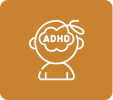
ADHD

DEPRESSION

AUTISM

LEARNING PROBLEMS

BEHAVIOURAL PROBLEMS

ADJUSTMENT PROBLEMS

STRESS
At Mind Weavers, our Child Psychologists are well-versed in the latest evidencebased interventions, providing personalized counseling to address the unique needs of each child.
Skills and Procedures Utilized
Clinical child psychology encompasses a wide range of procedures and skills addressing your child’s needs, including:
- Assessment (e.g., psychological, intellectual, cognitive, and behavioral evaluation).
- Intervention (e.g., psychotherapy and applied behavior analysis).
- Prevention program development (e.g., school readiness,bullying, addictions, obesity).
- Consultation with transdisciplinary team
- Evidence based Practices

Services Offered By Our Center
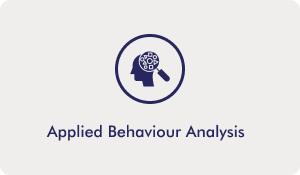
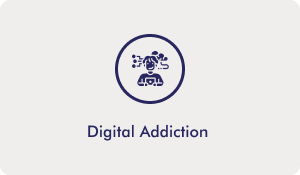
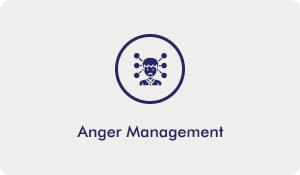
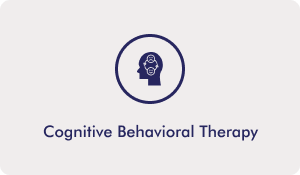
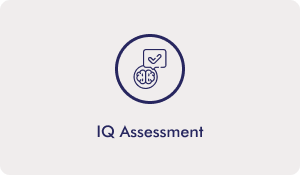
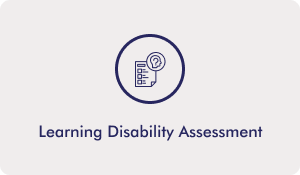
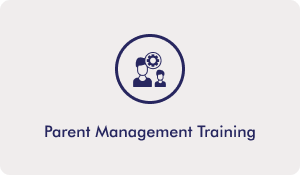
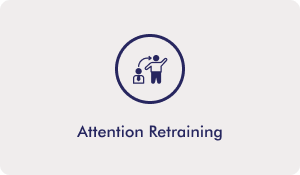
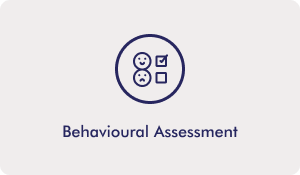
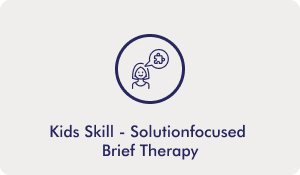
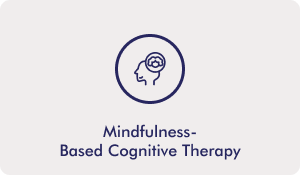
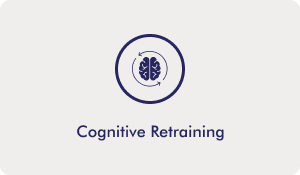
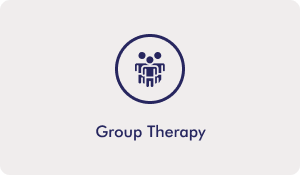

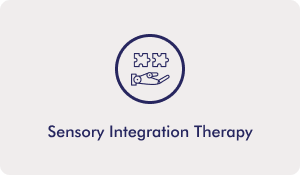
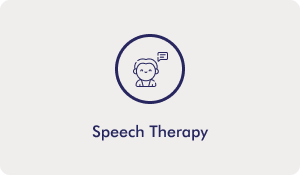
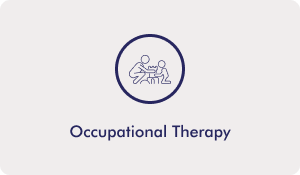
These services are administered by experienced and compassionate clinical psychologists and therapists that ensure your child receives the care and support they need to lead healthier and more fulfilling lives.
FAQs on Anger Management
Anger management involves strategies and techniques to control and reduce feelings of anger, helping individuals respond in healthy and constructive ways.
Anger management is important because uncontrolled anger can lead to aggressive behavior, physical health problems, and difficulties in personal and professional relationships.
Common causes include psychological factors (stress, frustration), environmental factors (family background, social environments), biological factors (genetics, hormones), and underlying mental health conditions (anxiety, depression).
Signs of anger issues include frequent irritability, difficulty calming down, physical symptoms (increased heart rate, muscle tension), aggressive behavior, passive-aggressive behavior, and trouble maintaining relationships.
Effective techniques include recognizing triggers, cognitive restructuring, relaxation techniques, problem-solving, communication skills, timeouts, exercise, and therapy
Yes, therapy, such as cognitive-behavioral therapy (CBT), can help individuals understand the root causes of their anger, develop coping strategies, and improve their ability to manage anger.
Relaxation techniques include deep breathing exercises, meditation, progressive muscle relaxation, and guided imagery to calm the mind and body.
Improving communication skills involves learning to express feelings and needs assertively, using “I” statements, listening actively, and avoiding blame or criticism.
If you feel yourself getting angry, try taking deep breaths, counting to ten, taking a timeout, or engaging in physical activity to calm down before responding.
Help for anger management can be found through:
– Mental health professionals, such as psychologists, psychiatrists, and counselors
– Anger management classes or workshops
Mind Weavers for Adult Psychology -
Why We're Different?
✨Experience:
Mind Weavers stands out in the field of adult psychology for several reasons. Our team of licensed professionals brings a wealth of experience in dealing with adult psychological issues. We understand that adulthood is a time of significant transition and are committed to helping you navigate this period with empathy and expertise.
✨Understanding Issues from The Root:
We support a comprehensive strategy for mental health. Hence, it means we don’t just focus on your symptoms; we explore the root causes of your challenges. Therefore, by addressing these underlying issues, we aim to provide long-lasting solutions that improve your overall well-being.
✨Supportive Environment:
Another reason to choose Mind Weavers is our commitment to creating a supportive environment. We know that discussing mental health can be difficult, which is why we prioritize creating a safe, non-judgmental space. Our goal is to make you feel comfortable and heard, ensuring that you can openly discuss your concerns and challenges.
✨Flexible Treatment Plans:
Additionally, we offer flexible treatment options tailored to fit your lifestyle. So, whether you prefer in-person sessions or online consultations, we make it easy to access the help you need. Our flexible scheduling and various therapy modalities ensure that you can find the right fit for your needs.
Therefore, take the first step towards a healthier adulthood by choosing Mind Weavers. Your mental well-being deserves the best care, and we’re here to provide it.
Choosing Mind Weavers for
Your Child's Well-Being
At Mind Weavers, our aim is to have a happy, playful, and confident child.
We prioritize your child’s well-being and offer top-quality mental health services to support their growth and happiness. Our dedicated professionals including child psychologists, therapists, and counelors help children overcome challenges, develop crucial life skills, and thrive emotionally.
At Mind Weavers, you’re choosing more than specialized services; you’re selecting a caring and nurturing environment that fosters resilience, self-assurance, and a positive outlook.


